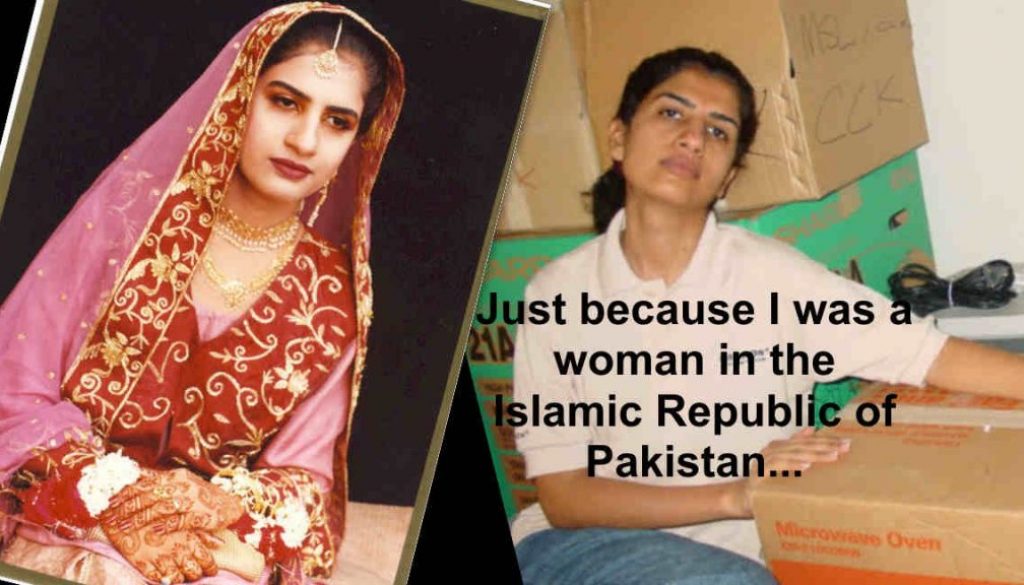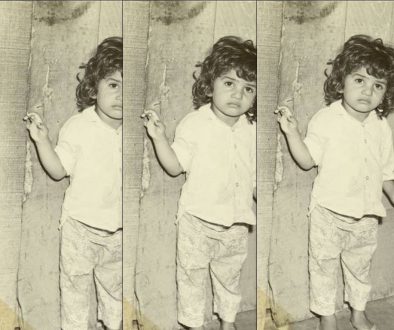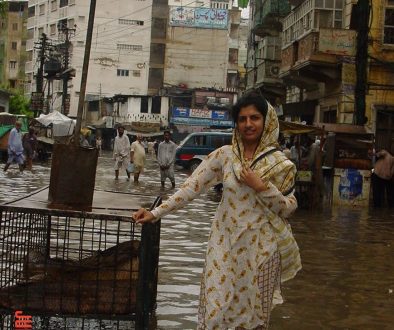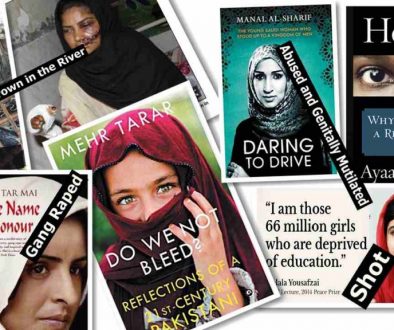He said “I divorce you” and the Islamic Justice System threw me on the streets
In Pakistan, wearing bright colours and gold jewellery is a sign that one is happy. On festive occasions, you will see an abundance of bright colours, flamboyant jewellery and big smiles. On the other hand, not so long ago, the divorced and widowed women mostly wore black or white clothing as a sign that they had no life because they no longer had a husband.
I am kinda the opposite. I have never liked flamboyant and flashy clothing and I hate wearing gold jewellery with a passion. Black and white were my favourite colours but none of that mattered on the most important day of my life – my wedding.
I wore the wedding dress, which was selected by my in-laws. I wore the gold jewellery that was also selected by them. The make-up, the bangles, the weight of the dress that I was wearing made me feel weary but it didn’t matter. As a good Muslim woman, my job was to keep my eyes down, smile and show grace during the wedding while the guests came and had a merry time around me.
From a cultural perspective, I wasn’t allowed to sit with my soon-to-be-husband on the stage until I had signed the wedding papers and said “I do” so, in the wedding halls, there is always a very small room with no windows (more like a dungeon) where a bride sits until the wedding ceremony is completed and then she goes to the stage and sits with her “now” husband.
I sat in that room feeling hot and uncomfortable. The Moulvi (a kind of Muslim Imam) came in the room with two witnesses. There were no vows, no romance and no sacredness about this affair. He asked me if I accepted this marriage in front of these witnesses and, as a good Muslim woman, I tilted my head down to indicate “Yes”. I said it three times and there it was. I was now a married woman.
I never had an opportunity to read my wedding papers. I simply signed them.
Years later, when I had decided to break away from my marriage from “hell”, I read my wedding papers and I realised that the “right to divorce” was taken away from me.
In the wedding papers, there is a section that says: Does the woman have the right to divorce? and the Muslim Imams & Moulvis conveniently cross that section and mark it “Not Applicable”
How does Divorce occur in the Islamic Republic of Pakistan?
In a patriarchal and Islamic way of divorce in Pakistan (and I imagine, all Islamic countries), the husband simply has to say the words three times.
I divorce you
I divorce you
I divorce you
And it’s done.
There are no obligations and laws to split the property and assets. If the woman doesn’t have her own money or a place to go to, this act would put her on the streets. Most of the divorced women end up going back to their parents and become the financial responsibility of their fathers or brothers, who would have to support them until they are married again.
Luckily, I was qualified to work so supporting myself wasn’t a big issue but I couldn’t divorce him; I had to rely on him agreeing and giving me a divorce.
There is another way in Islam for a woman to obtain a divorce and this process is called Khula. To get divorced in this manner, I had to forgo all my rights, return all the gifts that were given to me as part of the wedding and file my petition with the Islamic courts, who had the power to give me my freedom.
Once again, Islam failed to protect me. Allah was there for men and whatever I needed to do, I needed to do it without His Holy help.
My divorce was a mixed process. My husband agreed to give me the divorce and I also waived all my rights, including the dowry that my husband promised to give me immediately after the wedding and never did. It was a one-page affidavit that confirmed that we were divorced. He said the following words…
I divorce you
I divorce you
I divorce you
and That’s it. I was divorced. I had almost no money in my pocket and no place to live. But I was free.
I was lucky that my work visa for Singapore got approved and I was able to stay and create an independent life for myself. But, there are many in Pakistan, who go through this process and share this fate and have nowhere to go. The only choice they have is to go back to their families and their fathers and brothers have to take care of these divorced women and their children if there are any.
Not so long ago, my father wanted to divorce my mother and he called me to talk about it. He said that he is not happy with my mother and he wanted to divorce her. By then, I had learned the ways of the Western world and the division of assets. I asked my father how he was going to split his assets. His response was “I don’t want to give her anything”. My mother and father had lived with each other for about 40 years and the law allowed him to say that and leave her without any money. My mother had no rights on his property if he chose to divorce her.
How unfair is that? Women are treated worse than animals. They can keep serving the families of their husbands and still then, the system doesn’t give them any security and safety. So women suffer; they suffer silently because getting a divorce doesn’t give them freedom. It brings more shame, more problems and more chains to bind them to.
Pakistan is a country based on Islamic Law and when the law doesn’t protect women, I am left wondering about Islam. Is this true Islam? and if it is not, how can the men in Pakistan get away with treating women like animals?
They enslave us; they keep us ignorant and they use religion to shame us into this life of servitude.
But for how long?





July 15, 2018 @ 11:42 am
Incredible essay. Really eye-opening and coming from a very vulnerable place. You have been within this oppressive system, lived through it and now you can write about it openly. You have to be proud of yourself and serve as a model to all women in islam. Speak the truth!
July 16, 2018 @ 8:25 pm
Thank you Lily. That’s very kind. I hope that my vulnerability touches other hearts and we spread the wave of healing, growing and creating a better world